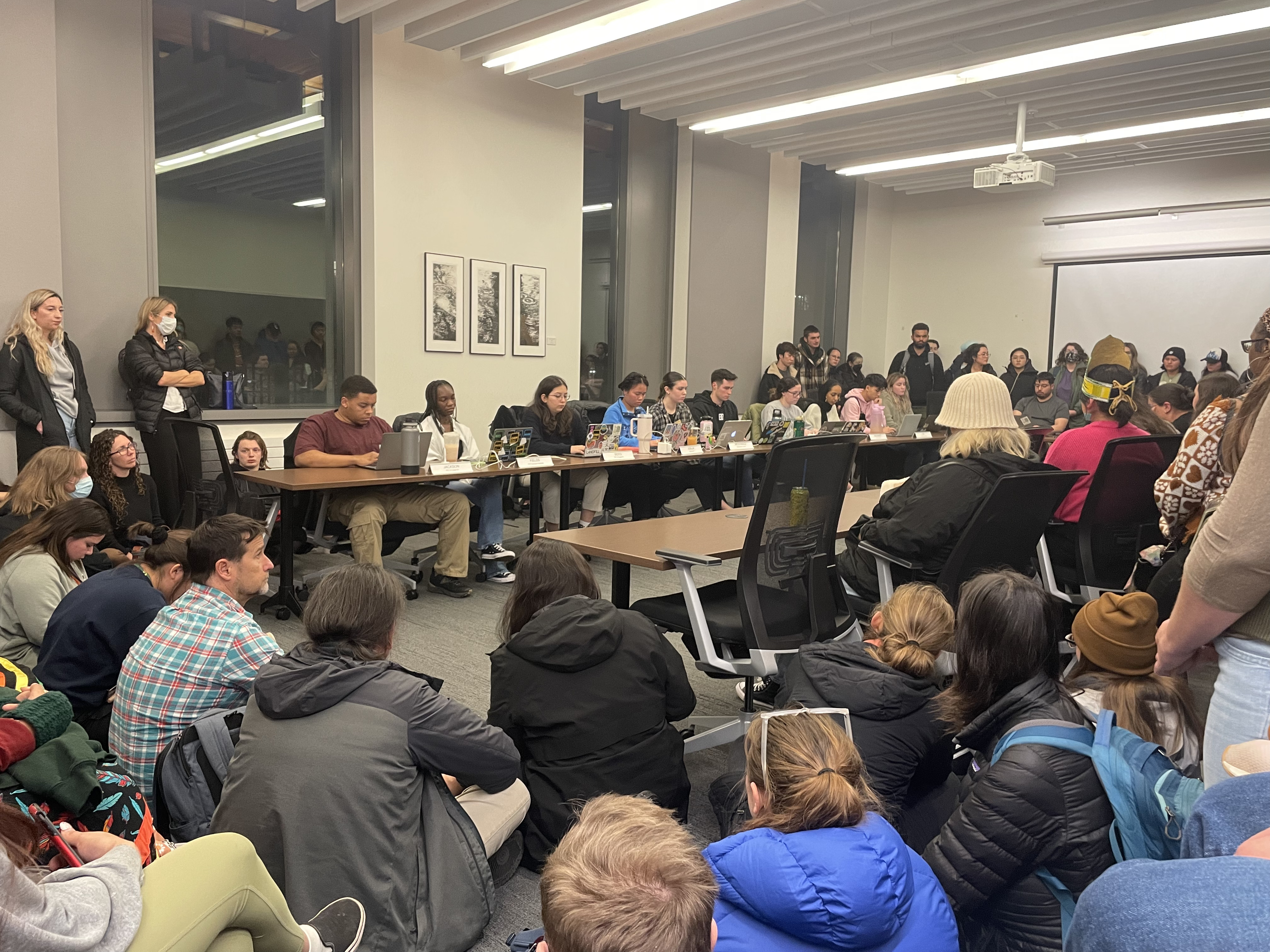Native American Student Union Budget Hearing
Dorian Blue River #indigenous #event #campus
 On January 17th, the ASUO meeting for NASU’s budget was packed to the gills. The tension was palpable; more and more people squeezed in and the ASUO committee members sat aligned at their table and firmly asked no one in the room to stand behind them, even as space dwindled. As the meeting convened, the NASU members sat across from the ASUO budget leadership. The ASUO Chair outlined that the meeting was closed to public comment and any filming.
On January 17th, the ASUO meeting for NASU’s budget was packed to the gills. The tension was palpable; more and more people squeezed in and the ASUO committee members sat aligned at their table and firmly asked no one in the room to stand behind them, even as space dwindled. As the meeting convened, the NASU members sat across from the ASUO budget leadership. The ASUO Chair outlined that the meeting was closed to public comment and any filming.
During COVID, like many groups on campus, NASU dealt with disruption and rocky transitions in leadership. This resulted in them missing a budget deadline in the spring and NASU explained that they lacked the support they needed for budget guidance.
Megan Van Pelt, one of NASU’s co-directors, described the actions of ASUO as spitting in their elders’ faces. NASU is an essential campus resource to indigenous students at UO and for so-called Oregon’s indigenous communities in general. “We need the budget for the generations ahead of us.”
Indigenous students are underrepresented at UO, with recent demographics counts putting them at 0.6% of the student body. Depriving an already constantly marginalized circle of students of resources they need over a simple bureaucratic deadline is shameful. Two of the many issues NASU faces with a lowered budget is funding for the Indigenous Women’s Wellness program as well as the Mother’s Day Powwow, which is the longest running student-led powwow in so-called Oregon. It is incredibly arrogant that UO uses NASU and the events at Many Nations Longhouse to market and elevate the university, but continually disrespects the needs and survival of indigenous students.
After the tumult of the meeting, steeped in the typical bureaucratic jargon, the only reprieve rousing speeches from NASU leaders, ASUO announced that they would not raise NASU’s budget for this year. While explaining this decision, several trembling ASUO members repeated that the budget verdict had ultimately been made by their predecessors. It’s a fair point to bring up once, but not an excuse. They also claimed that if they gave NASU their full budget over other organizations in a similar budget situation as them, it would be biased. However, ASUO agreed to fund the Mother’s Day Powwow in whole (one of the largest and most significant events put on by NASU yearly) with the caveat that NASU drop all other line items. They also recommended NASU go to the ASUO surplus fund, which still has a large sum of money, due to the lack of in-person events held during COVID.
It is inspiring to see students mobilize and take up space in response to the undermining of NASU needs but it is unlikely that this will be the last time the wellbeing of minority students are disregarded by this extremely wealthy institution. We wish NASU luck in continuing to endure the settler-colonial ideologies of this university (and beyond) that refuses to relinquish dominance and funding, and much healing in their upcoming events.